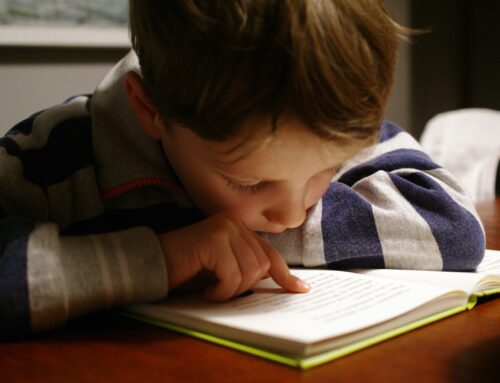It’s easy to forget, as the hustle and bustle of the holiday season gets underway, that children and adults with sensory processing and attention disorders, as well as anxiety and related conditions, aren’t necessarily looking forward to the holidays. These individuals often thrive on routine and structure, and the holidays are filled with changes, noise, travel, and a whole lot of general newness that can quickly become overwhelming. The colder temperatures can also trigger seasonal depression, and some studies have shown those with attention disorders, in particular, to be more susceptible.
Everyone deserves to enjoy the season. Here are a few ways that adults and children alike can find reprieve from sensory overload as the holiday season begins:
Make Your Lack of a Routine Into a Routine
Children with neurobehavioral disorders often benefit from visual cues. Consider creating a visual schedule of your child’s day, giving you something to introduce your child to each morning, and refer to throughout the day. This is a good idea even when the holidays aren’t in full swing, but such a visual can be especially comforting during breaks from the familiar, like school. One easy way to do this is to purchase a pack of notecards, and label each one with an hour by hour account of your child’s day. For instance, the first card might read, “8am: Time to wake up,” followed by, “9am: “Time to drive to Grandma’s,” on the next card, and so on, until you’ve continued through the day. For younger children, you might wish to draw or print pictures to glue to the notecards that correspond with each activity. While you can certainly use a whiteboard or traditional paper calendar of events for a similar effect, the great thing about the hour by hour notecards is that you can use them to help your child understand what is to come in a gentle and concrete way. For example, if your child is crying for a snack, you can show him or her the note cards, and explain what’s come before and what will come next. “We just finished shopping, so then we’ll stop by the car wash, and then it’s snack time. We’ve already done one thing on our schedule! Just one more thing and then you’ll have your snack.”
Adults will also benefit from a calendar, or even a to-do list. Agendas and planners are another idea, as they can help adults (and teens) feel more in control, and less overwhelmed.
Use Holiday Activities to Your Advantage
The holiday season can actually be an ideal time to practice social and motor skills. Read socialization books with your child, and let them work with you when it comes to baking cookies or making crafts. Maybe they can make their own clay dreidel, working those fine motor skills, or paint their own Christmas cards. Can your child help set the table for Thanksgiving dinner? The more you involve your child, at their own pace and comfort level, the more fun you’ll all have.
Carefully Consider and Plan for Each Activity
If you’re wanting your child to meet Santa, take note of any sensory-friendly Santa days available in your area. If you’re attending an activity that you know will be noisy, bring along ear plugs or headphones. Bring along a bag of comfort items to family functions, including familiar foods and sensory-friendly clothing. While every parent looks forward to dressing their child in festive clothing, finding holiday-themed items that don’t upset your child isn’t always easy. Luckily, there are ventures like Target’s adaptive clothing line or party clothes at Teres Kids that may offer some support this holiday season.
Remember the Important Things
Don’t underestimate the importance of a regular sleep schedule throughout the holiday season. Lack of sleep will only worsen these conditions, as will too much sugar. Try not to feel pressured to do everything all in one day. Spreading out the holiday visits and events may just make the time more enjoyable. After all, who says you have to open every gift on Christmas day? Most of all, encourage your child to let you know when they’ve simply had too much of an activity. Be prepared to provide them with the breaks and quiet spaces they may need, and remind family or friends of these needs, so that everyone can enjoy the happiness of the season.
The holidays can be tough for those with neurobehavioral disorders and their families, but Neurobehavioral Associates is here to help. We’re always available to offer our comprehensive assessments and services to help your loved one feel their best at every point of the year.






